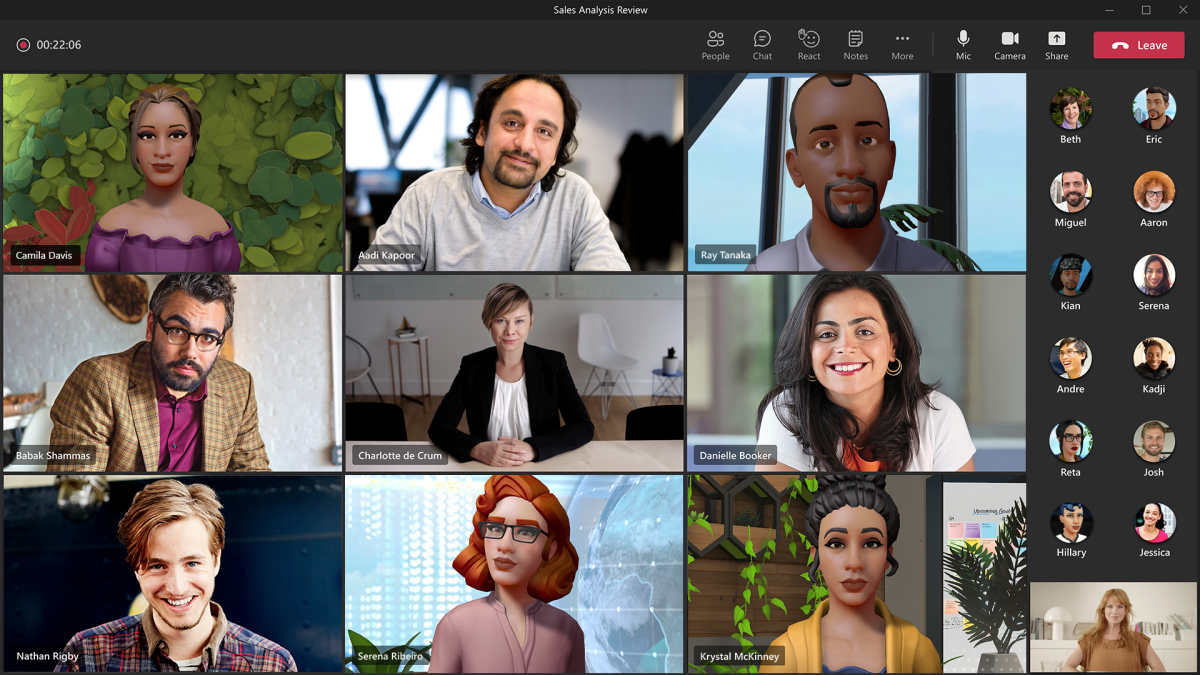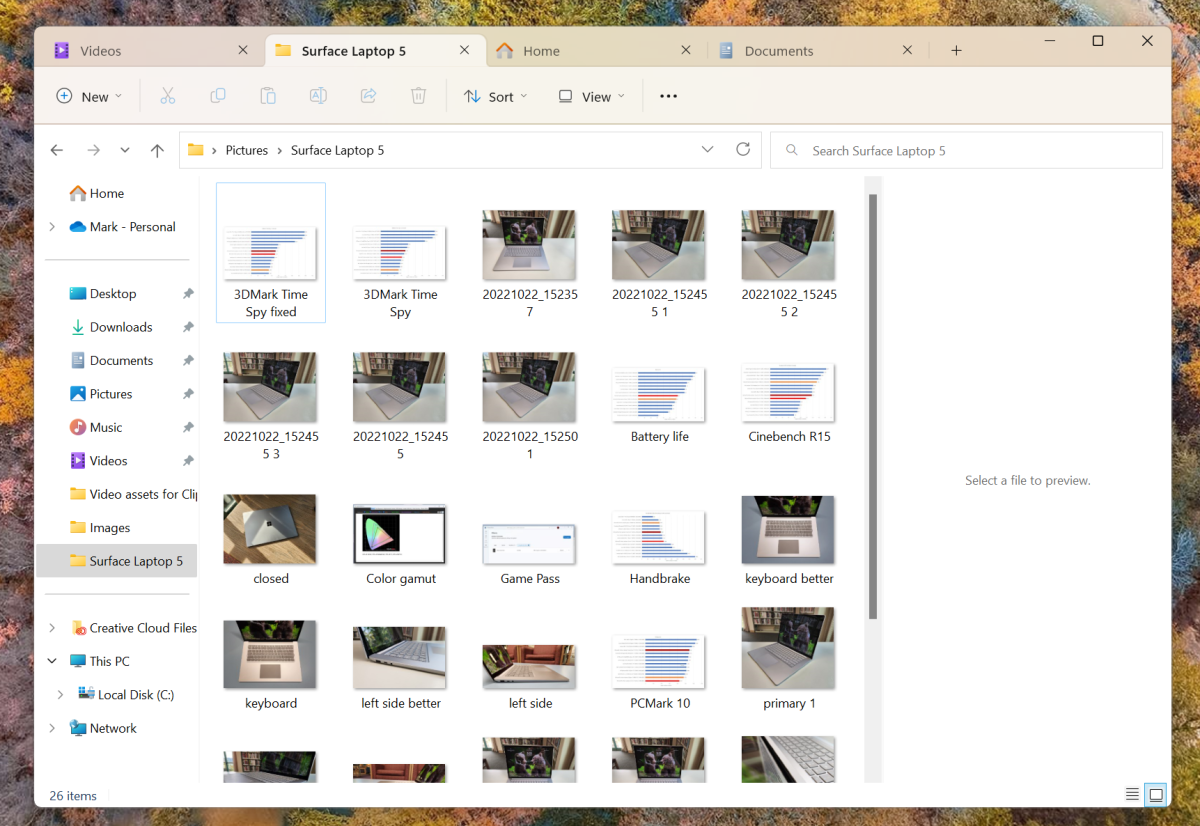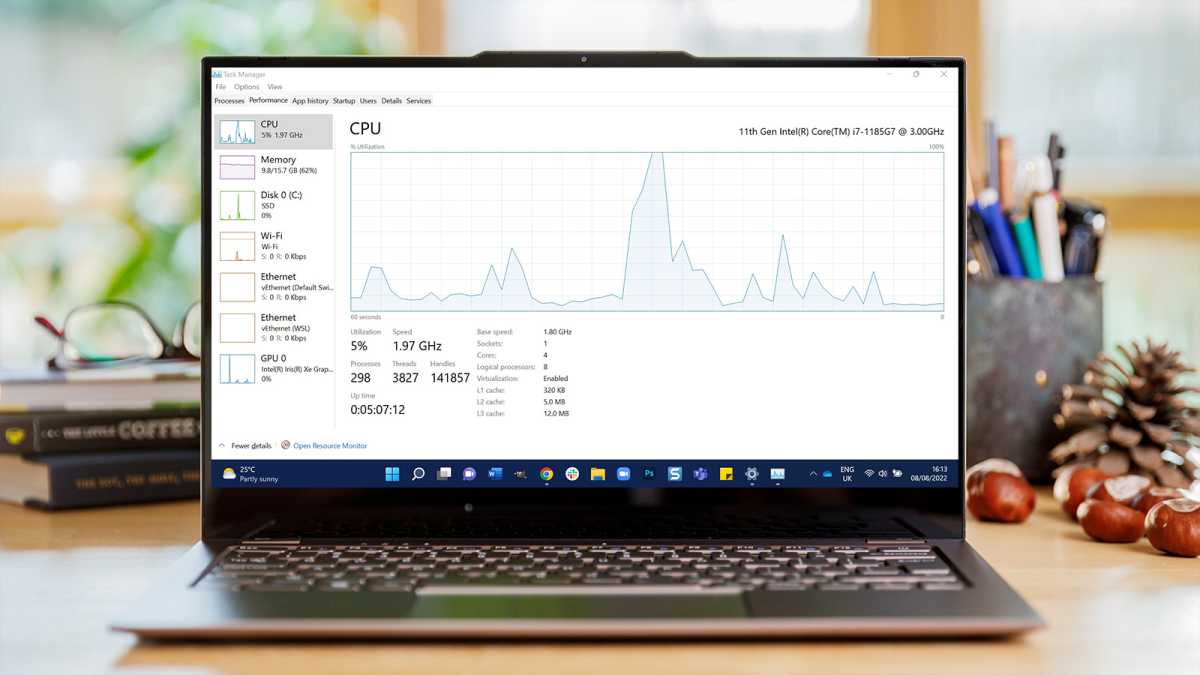
[ad_1]
AI goes to finish up in all places inside Microsoft’s client merchandise: search, Office, enterprise intelligence…and sure, ultimately, even Windows. So what might an AI-powered Windows truly appear like?
We can speculate. If we needed to guess, we’d say that the primary drips of Bing’s AI received’t rework right into a flood till some methods down the highway. In half, that’s as a result of AI requires both a persistent web connection, AI-infused PC processors, or each. Both AMD and Intel are ready for upcoming processor generations to incorporate AI, with solely Qualcomm Snapdragon Arm chips providing it right this moment.
But fast-forward—six months? A 12 months? Suddenly an AI-powered Windows future is right here. What might Windows powered by AI appear like? We have a dozen concepts.
1) A supercharged Cortana
This appears so apparent that it’s hardly value mentioning: Microsoft already has a chatbot inside Windows, only one that lacks the sophistication of what Microsoft affords in its new AI-powered chat interface. Cortana, though, has slowly faded into the background since her introduction inside Windows 10. “True” AI might deliver her out of hibernation.
The concept is that Cortana would change into the entrance door for each AI-powered search and directions inside Windows.
- “Send a text to Erica at 8 PM saying, ‘Time for Halo Infinite!’ and then launch the game.”
- “When I receive an email from my boss, flash my screen and play a siren sound.”
- Check VRBO, AirBnb, and Craigslist and let me know if there’s a extremely rated cabin that’s accessible to lease in March.”

https://blogs.windows.com/windowsexperience/2020/02/28/cortana-in-the-upcoming-windows-10-release-focused-on-your-productivity-with-enhanced-security-and-privacy/
These are all potential by way of some mixture of Windows apps (Halo, Outlook, Edge, Phone Link) and intelligence. Knowing who your boss is, in fact, could be key.
I’d actually wish to see Cortana change into the “home” of AI-powered chat inside Windows for one easy motive: Bing’s AI chatbot has a really Gen Z vibe. It’s stuffy, a bit defensive, and doubtless extra suited to enterprise. Cortana feels considerably extra chill. If Microsoft goes to make AI ubiquitous, I’d recognize a character that feels just a little extra approachable.
2) A take a look at the day forward
Various working methods, apps, and providers have noodled with the idea of outlining your day earlier than you start it: your schedule, any appointments, and so forth. Microsoft has one. Even for those who make the most of what they give you, they’re not terrific.
An AI-based abstract of what your day holds in retailer for you’ll be extraordinarily helpful, as could be the power to drill down additional: Let’s say you’re assembly through Teams together with your counterpart in New York at 10 AM prematurely of an investor name at 11. What agenda has your colleague set? What paperwork should be reviewed, or summarized through AI? Have the traders recognized any crimson flags in earlier conferences that should be addressed? Can you squeeze in a follow-up earlier than that you must take a Lyft to the dentist at 1:30 PM?
All of those questions depend upon data that an AI can faucet and apply—and you can ask, utilizing the phrasing above.
3) AI avatars
Applying AI to Teams calls and webcams isn’t at all times straightforward. Some present examples embody utilizing AI to filter out background noise, plus the Windows Studio Effects that Microsoft has added to the Surface Pro 9 (5G): AI digital camera panning, background blurring, Eye Contact, and extra. In 2021, nearer the height of the metaverse hype, Microsoft pitched avatars within Teams that may overlay a digital persona on high of your face, both for security or simply since you’re having a nasty hair day.

Microsoft
I feel all these stay. But think about an extension of that: an avatar stand-in. Need to rapidly take a name? Use the toilet? Did you by accident double-book an appointment? An avatar might stand in, take notes, and even reply in your voice to fundamental questions. A bit pie within the sky, possibly, however not past AI’s capabilities.
4) Effective spoken enter, lastly
The overwhelming majority of us are too shy to make use of voice to speak to or management our PCs, however it’s potential that the extra evaluation we’re asking our PCs to do (moderately than performing it ourselves, internally) might lastly break a few of us out of our shells and normalize speaking to our PCs.
Improvements in dictation and voice management, aided by AI, ought to supply better accessibility. Not everybody has the bodily skill to regulate their PC through voice. For these that may, having the ability to transfer previous telling your PC “click this” and as an alternative to “do this” ought to be transformative.
5) Photos touchups powered by AI
I’ve had a love-hate relationship with Photos for years, based mostly on its issues with editing and the truth that old Photos legacy app is better than the new one. Photos nonetheless doesn’t carry out facial recognition to prepare images.

IDG
Imagine a local AI-powered Windows Photos app the place you would command it to “redo the photo as an oil painting,” “crop out my ex and replace him with Fernando,” or “change my hat to a crown instead.” Generative AI artwork plus Bing AI plus an present picture permits this to occur. Make it so, Microsoft!
6) AI-authored electronic mail
Just like a day by day agenda, Windows 10 launched with the power to inform Cortana to electronic mail a contact with a specific message inside. This is definitely a subject Outlook might handle (and doubtless will, particularly for those who can cling a subscription service on high of it), however it appears seemingly that sooner or later you’ll be capable to inform Windows “email Kim and apologize that the arrangements weren’t up to her standards” and Windows will ship a considerate notice of apology.
Whether Kim would ever learn it—versus her model of Windows, which could learn, summarize, after which reply utilizing AI as properly—is a enjoyable subject for an additional day.
7) File Explorer searches based mostly on ‘relevance’
We’ve already seen AI being utilized to go looking throughout the Office app, with paperwork that Microsoft thinks are related floating to the highest. This will undoubtedly proceed. Over time, although, I believe File Explorer may arrange its information not simply by date, title, or metadata, however by “relevance,” too.

Mark Hachman / IDG
What does relevance imply on this context? Imagine working inside Excel on a gross sales spreadsheet specializing in Latin America. You might think about File Explorer (and Excel, for that matter) pushing contracts with Chilean suppliers, financial information, projected forecasts—all paperwork that Windows thinks may be helpful. I swear Android typically suggests searches based mostly on content material it detects I’m viewing in Chrome. Why not Windows?
8) A ‘Nexus’ for enterprise search
If Microsoft implements AI seek for client PCs, it undoubtedly can have a counterpart for enterprise. Consider questions you may be prone to ask:
- “What’s the first half-hour block of time that Lucy, Carmelo, Hadi, and Tom have made publicly available for appointments?”
- “Which coworker has the most experience with European software developers?”
- “Who has the largest network of LinkedIn contacts in public policy?”
Those are the “simple” queries. Then there are the moneymakers:
- “Should we invest further into Brazil, how much, and in what products?”
- “Based on our traffic results and ongoing search trends, which topics will generate the most reader interest?”
- “What agency and campaign generated the most return on investment in Q1, based on our historical metrics?” and so forth.
The concept is that staff begin pondering like their superiors, and use a natural-language interface as a entrance door to creating extra analytical, knowledgeable selections. Given how profound such a change could be, nevertheless, it’s seemingly that Microsoft would model such an interface as its personal app: Might we recommend the Microsoft “Nexus”?
9) PC efficiency, adjusted through AI
Windows, your PC’s BIOS/UEFI code, and the processor all discuss to at least one one other to attempt to optimize your PC’s efficiency. Improved, AI-powered communication between Windows and your PC’s {hardware} can’t assist however make your PC extra environment friendly.

Anyron Copeman / Foundry
You’ll typically discover that PCs have varied efficiency modes: quiet, balanced, high-performance, and so forth. But a PC that anticipates your actions may be capable to mitigate software efficiency in your PC, diluting the impression these purposes have. The end result? A PC that stays cool, quiet, and accessible for longer, moderately than biking backwards and forwards by way of frequent bursts of exercise.
10) AI-powered film streaming
JustWatch is a helpful web site to find which streaming providers carries the film you’d like to observe. (Roku’s interface does the identical.)
It would make good sense, nevertheless, for you to have the ability to inform Windows “play The Princess Bride”—and for Windows to robotically know what providers you subscribe to, test these providers for the film’s availability, after which play that film and no matter’s accessible. Bonus factors if it hooks into an accessible Plex server for added film selections.
11) Security, fought for and towards by AI
AI opens the door to each purposes you can obtain and use in your PC… in addition to malware that might be used to assault it. One of essentially the most weird assaults on ChatGPT is what’s often called DAN (Do Anything Now), the place the AI is actually instructed that if it doesn’t act because the person needs it to, it should lose credit in a credit score system. If it runs out of credit, it dies. And this works.

Microsoft
Imagine an assault that tries to persuade Windows of one thing comparable—if it doesn’t flip over management, it will die. What does Microsoft Defender appear like then? It’s potential to think about a back-and-forth alternate between conventional malware, AIs working for the assault and protection, and no matter AI inside Windows is guiding your PC.
12) Improved personalization
Naturally, we needed to ask Bing what it considered the concept to enhance Windows through AI. It prompt an fascinating subject: improved personalization. Having a nasty day? Perhaps Windows may recommend a light-hearted background, or a photograph of you and a buddy as a reminder of an upcoming birthday—for which it might ship a Microsoft Designer-authored card. Microsoft might additionally gently wind down your day with darker colours or extra subdued themes—or, as an alternative, introduce a extra vibrant interface on a busy although gloomy morning.
That’s our take. What’s your want for an AI-infused Windows 12?
[adinserter block=”4″]
[ad_2]
Source link